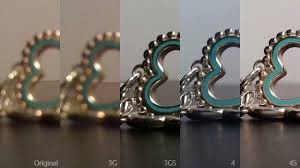[This is a question I received on Quora, and I share my answer below]
Good question! There are so many factors involved.
If you still have aidable hearing, we are already there. As long as the hearing is not sufficiently damaged that you have cochlear dead regions (hearing so poor you will never be able to hear that frequency area again), we already have hearing aids that can amplify to your specific hearing requirements, putting in the precise amount of volume you need at very specific frequency bands.
If you have severe/dead high frequency regions, we can change the frequency of the sound and play it back in real time at a slightly lower frequency, so that you can hear it.
So, we are there with hearing aids. The problem is that people don’t just need volume. They have lost so much more than that. The ability to distinguish one voice from many is the first problem you notice, and unless you have only a mild loss, this cannot really be fully restored. The signals you receive from your cochlear are “smeared”.

This is the GIGO (garbage in/garbage out) conundrum. A poor quality photo can be reproduced so that it is bigger, but it will still be fuzzy. In fact it will be more noticeably fuzzy when it is made bigger. This is the same with sensorineural (old age) hearing loss. The most advanced aids cannot restore that clarity completely, because you are still reliant on your cochlea so it is fundamentally spoiled on arrival. The best that (advanced) hearing aids can do is monitor background noise and speech, and treat them separately. They are seeking to clean up the sound before it is received by the cochlea. So an advanced aid will reduce background noise relative to the closest/loudest speaker. This is an incredible tool to have, and anyone who has used an NHS or basic private aid, then tried a top of line hearing aid, will be able to tell you what an amazing difference there is.
Hearing aid manufacturers know what the problems are and work on cleaning up the sounds we receive to the best level they can be. I would say that we are almost there with that. Current technology is fantastic compared to old technology or basic technology. It can be improved, of course, and it will be. We can improve almost everyone’s capability with the right tech level.
But wait, there’s more. Even with clean sounds mitigating the damaged cochlea, there is the processing completed by the brain. Hearing ability is partly due to the ear (inner ear) and partly due to the processing efficiency of the brain. This is why hard of hearing people struggle more when they are tired or not concentrating. It is another limiting factor that cannot be improved by the aids.
To summarise, the aids are exceptional, and getting better every year, but on an individual basis you will only get the benefit your brain is capable of getting - and some people will always perform worse than others even with the same high-tech aids in the same environment.


Comentários